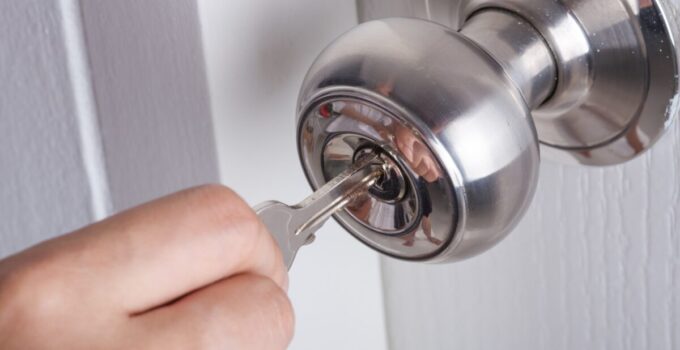In the realm of home and business security, the importance of robust protective measures cannot be overstated. At the forefront of these measures is rekeying, a less talked-about yet highly effective security strategy.
Rekeying, an alternative to replacing locks, involves altering the internal mechanism of a lock to fit a new key. This simple yet ingenious process offers a multitude of benefits, including enhanced security, cost savings, and increased control over who has access to your property.
What is Rekeying?
Rekeying is a specialized process that involves changing the internal configuration of a lock, enabling it to work with a new key without the need for complete lock replacement. This procedure is a cornerstone in modern security practices, especially when full-scale lock replacements are impractical or unnecessary.
By adjusting the lock’s internal pins or tumblers, it renders old keys useless, thus securing your property against unauthorized access using previous keys. It’s a highly effective way of maintaining your current lock hardware while simultaneously upgrading security.
When is Rekeying Necessary?
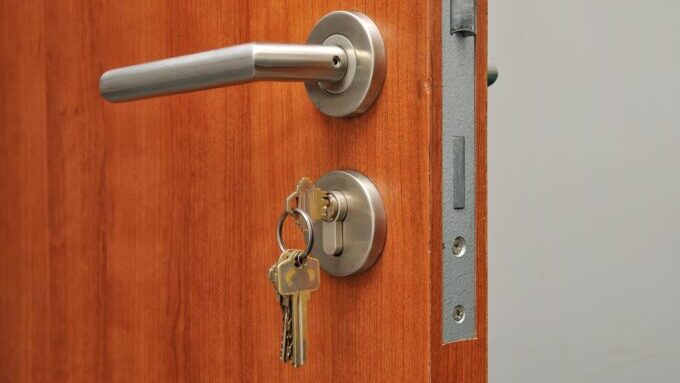
Source: amlock.com.au
The necessity for rekeying often arises in various situations, each underscoring the importance of maintaining secure access to your property. One of the most common scenarios prompting rekeying is moving into a new residence or commercial space. It’s crucial in such cases to eliminate the possibility of former occupants or others with prior access from entering the premises.
It is also a strategic response to situations like losing keys, concerns about unauthorized key duplication, or after a break-in attempt. It’s a proactive measure that provides an added layer of security and it’s best done with the help of a professional locksmith service.
How Does Rekeying Work?
The rekeying process begins with the removal of the lock from the door. A locksmith or an individual using a DIY kit then disassembles the lock to access its core, which contains several small pins or tumblers. These components are what the key interacts with to unlock the door.
During this process, these pins are rearranged or replaced to match a new key’s unique shape and size. This alteration ensures that only the new key can operate the lock, effectively making any old keys useless. The process is meticulous and requires a keen understanding of the lock’s mechanism.
Tools Needed for Rekeying
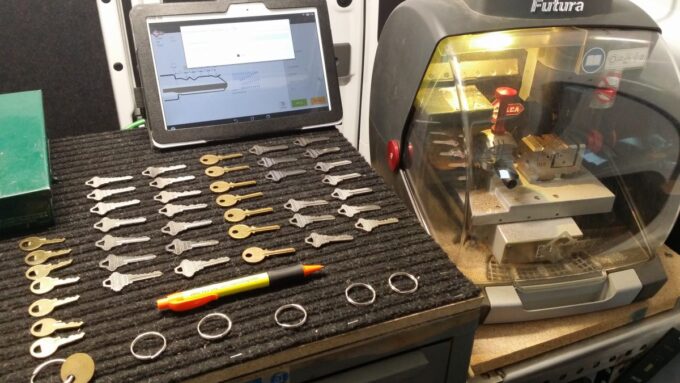
Source: affordablelocksmithmilwaukee.com
Rekeying a lock requires specific tools to effectively change the internal mechanism. Key among these is a key decoder, which is used to determine the correct pin sizes for the new key. Other essential tools include a set of different sized pins or tumblers, a plug follower to remove the lock cylinder, and a ring remover to disassemble the lock.
Additionally, a new key or set of keys that match the new configuration is necessary. These tools collectively enable the entire process, ensuring the lock is accurately adjusted to fit the new key.
DIY vs. Professional Locksmith
When considering rekeying, the choice between a do-it-yourself approach and hiring a professional locksmith is pivotal. DIY rekeying kits are available and can be a cost-effective solution for those comfortable with mechanical tasks. However, the lack of professional training can lead to errors, potentially compromising the lock’s integrity and security.
On the other hand, professional locksmiths bring expertise, precision, and experience. They can quickly and efficiently rekey locks with a higher degree of security assurance. While this option might be more costly, the peace of mind and guarantee of professional workmanship often justify the expense.
Have you ever questioned how much will a locksmith charge you for their services? Luckily, our guide on common myths about locksmiths covers just that.
Benefits of Rekeying
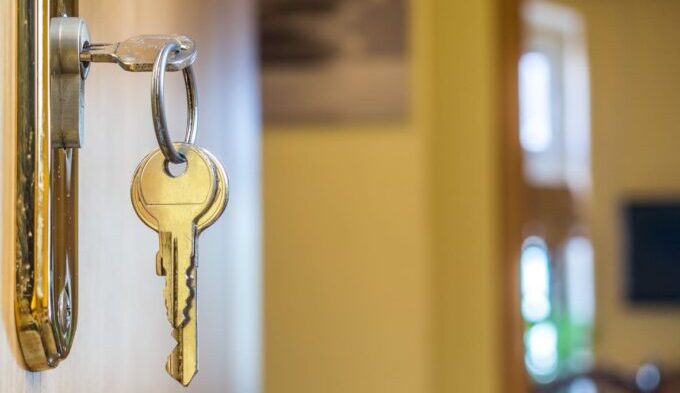
Source: flyinglocksmiths.com
Rekeying offers numerous benefits, making it a popular choice for enhancing security. Its primary advantage is improved security without the need for complete lock replacement. This not only makes it a cost-effective option but also allows for quick security upgrades.
It is especially beneficial in scenarios such as tenant turnover in rental properties, ensuring that previous occupants no longer have access. It also serves as a practical solution for lost or stolen keys, eliminating the risk posed by keys that may have fallen into the wrong hands.
Improved Security
The most significant benefit of rekeying is the enhanced security it provides. By altering the lock to fit a new key, rekeying immediately invalidates old keys, effectively preventing previous key holders from gaining unauthorized access.
This is particularly crucial in preventing break-ins, as it eliminates the risk posed by lost, stolen, or otherwise compromised keys. It is an effective deterrent against break-ins, adding an extra layer of security to your property. It’s a proactive approach to safeguarding against potential threats, ensuring that only authorized individuals have access.
Cost-Effective Security Upgrade
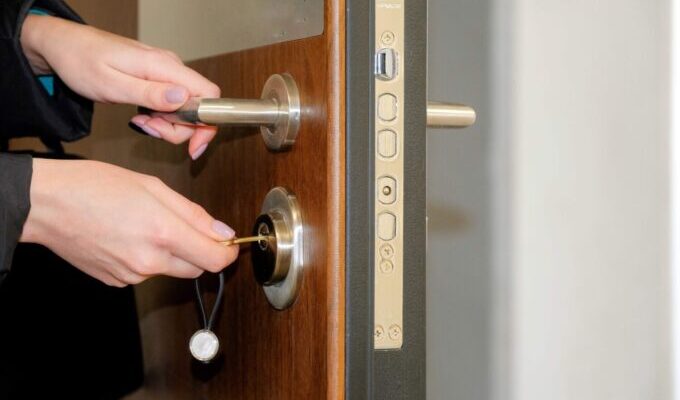
Source: info.instakey.com
Rekeying stands out as a cost-effective alternative to complete lock replacement. While replacing locks can be expensive, especially for high-security models, rekeying uses the existing hardware, significantly reducing costs.
This affordability makes it an accessible option for a wide range of budgets, allowing homeowners and businesses to enhance their security without incurring significant expenses. It’s particularly beneficial for property managers and landlords, who can ensure the security of their properties between tenants without the need for costly lock replacements.
Convenience and Peace of Mind
Rekeying offers not just enhanced security but also convenience and peace of mind. For those with multiple locks, rekeying can simplify key management by configuring all locks to operate with a single key. This reduces the number of keys you need to carry and eliminates the confusion of matching keys to specific locks.
The peace of mind that comes from knowing your locks are secure and that access is controlled is invaluable. It ensures that only you and those you trust have access to your property, providing a sense of control and security.
Maintenance and Longevity
Rekeying also plays a role in the maintenance and longevity of your locks. By regularly doing this, you ensure that the locks are functioning properly and not susceptible to wear and tear that might compromise security. This preventative maintenance can extend the life of your locks, saving money in the long run. Regular rekeying can also identify potential issues with your locks before they become serious problems, allowing for timely repairs or replacements.
Conclusion
Rekeying is an effective, economical, and convenient way to enhance the security of your property. It offers a practical solution to various security challenges, from lost or stolen keys to ensuring that previous occupants no longer have access.
The process is relatively simple, yet it provides significant security benefits, peace of mind, and convenience. Whether you choose to rekey your locks yourself or hire a professional locksmith, the advantages of rekeying are clear.

